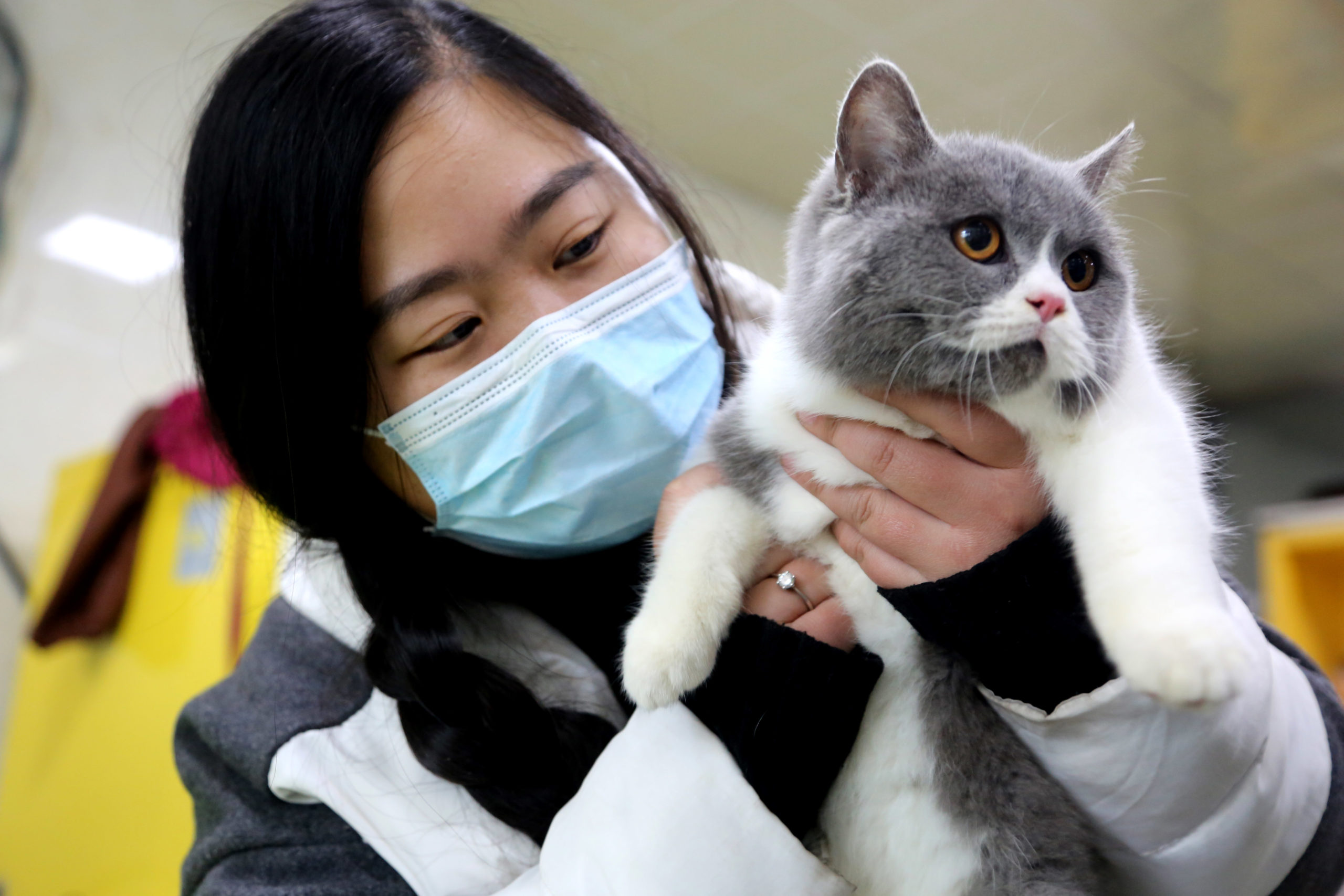Harbin officials face backlash for putting down COVID positive cats
A woman tested positive for COVID-19 in the northeastern Chinese city of Harbin. She was hospitalized, leaving her pet cats alone at home. They tested positive for COVID-19, and were euthanized. Social media users called it an act of “astounding cruelty.”

The local government of Harbin, the capital of northeastern China’s Heilongjiang Province, has come under fire for euthanizing three pet cats who tested positive for COVID-19. The decision, which was made without the owner’s authorization, has triggered an outpouring of anger and disapproval on Chinese social media, with animal rights advocates and others calling for health authorities to offer a more ethical and standardized way to treat animals infected with the coronavirus.
According to the Beijing News (in Chinese), the issue first received attention on the morning of September 28, when the owner, who has only been publicly identified by her last name, Liú 刘, took to social media to share her frustration over the situation. Liu, a COVID patient who’s currently in a hospital receiving treatment, revealed that community workers in her neighborhood had notified her that they would put down her cats later that day because they had tested positive for COVID-19.
Unable to leave the hospital, Liu was hoping that public pressure resulting from her post would save her pets. But on Tuesday evening, her three cats, who had been living with her for almost six years, were euthanized.
Liu told the Beijing News that she had left her pets at home when she was admitted to a hospital after testing positive for the virus on September 21. During her time away, the cats were provided with enough water and food, and community workers paid regular visits to her apartment to take care of the animals. But then on Monday, she was informed that her pets had been diagnosed with COVID-19 and had to be put down.
“I was told that because there was no precedent for treating animals with the coronavirus, my cats would be euthanized,” Liu said. “They asked me to sign an agreement, but I declined.”
Despite her opposition, euthanasia was performed on her cats around 6:30 p.m. that day.
China news, weekly.
Sign up for The China Project’s weekly newsletter, our free roundup of the most important China stories.
When reached by the Beijing News, officials at the local residential committee for Liu’s neighborhood stood by the decision, saying that they had tested each of the cats for COVID-19, and both had been positive. They argued that they had to end the cats’ lives in order to make Liu’s apartment virus-free.
“The owner wouldn’t be able to return to her home if her cats were left untreated. Residents of her building, and even the entire apartment complex, would have been affected, too. That way, the pandemic would never end,” a community worker told the publication.
Although it’s unclear whether Liu’s cats showed symptoms, or how severe their cases were, their euthanasia was defended by Féng Zijiàn 冯子健, deputy head of the Chinese Centre for Disease Control and Prevention. Talking to the Beijing News, Feng explained that under current policy, if COVID tests of a cat show repeated positive results, it has to be put down. Feng added that because there was little research on animals and COVID-19, it was reasonable for the community workers in Harbin to be “extra cautious” when dealing with Liu’s case.
The end-of-life decision was also backed up by China’s Law on the Prevention and Control of Infectious Diseases, which stipulates that “when a virus breaks out, wild animals and domestic pets, they can be controlled or even killed if necessary.”
Online, opinions on the news went both ways. Cat lovers and animal rights advocates argued that because the risk of animals spreading COVID-19 to people was considered to be low, euthanasia was unwarranted in Liu’s situation. “Those poor cats definitely deserved a chance to be cured of COVID-19. Harbin officials had so many other better options and they basically chose to kill the animals,” a Weibo user wrote (in Chinese). “I’m shocked and disgusted by how cruel the decision was. Imagine your family members being put down just for having COVID-19. That must be how Liu feels about the whole ordeal,” added (in Chinese) one commenter.
Others said the backlash was “ridiculous” and showed the selfishness of some pet owners. “Those community workers are working day and night trying to eradicate the virus and some people still think those cats should be kept alive at the risk of endangering the entire nation. Get a grip!” another Weibo user chimed in (in Chinese).
This is not the first controversy involving pets during the COVID-19 pandemic in China. Early in the outbreak, when Wuhan went into lockdown, barring residents who were traveling outside of the city from returning, groups of volunteers combed through residential neighborhoods to help pets that had been left behind at homes, with nothing to eat or drink. In January, when residents of a neighborhood in Beijing were ordered to undergo isolation at centralized quarantine facilities, the local government was criticized for forbidding them from taking their pets with them and not making any plans for the animals left behind. In response to the backlash, local officials rolled back the policy and created a special quarantine location for pet owners to isolate with their pets.






